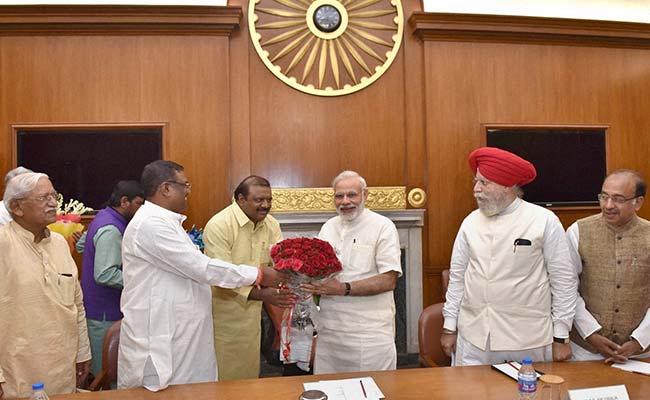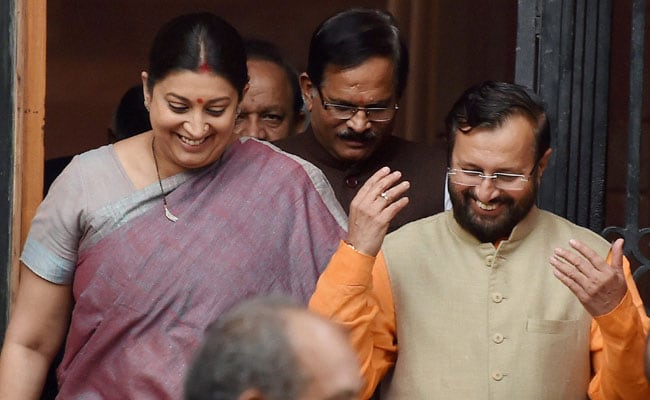While perhaps not altogether untrue in individual cases, none of this can be used as a broad brush. For every example of each of the above, an opposite example is also possible.
Second, while we can speculate - and perhaps correctly guess - the reasons for some ministers losing certain portfolios, the full story will never be known. Obviously, the Prime Minister - especially somebody as hawk-eyed and well-informed as Modi - is privy to feedback that he will not share but may choose to act upon. At least two movements in the government in key portfolios define conventional wisdom. The Prime Minister must have his reasons, and he is not going to tell us.
To this writer's mind, the expansion-reshuffle has very little to do with the Uttar Pradesh election of 2017 or the Uttarakhand election and so on. After Bihar, it is reasonable to presume that Modi is focusing on 2019 and a potential re-election. State assembly polls, while important, are not going to define his actions at the government level.

Prime Minister Narendra Modi is greeted by the newly inducted ministers at a meeting in New Delhi on Tuesday (PTI)
Gradually, Modi is strengthening the non-Yadav OBC and upper caste coalition with a segment of Dalits that has been the BJP's mainstay in its best days in Uttar Pradesh, whether in the early 1990s or in 2014. More than 2017, which remains a challenge, Modi and Amit Shah are focusing on Uttar Pradesh for the next Lok Sabha election and for the 2020s. Patel in particular could be a potential face in Uttar Pradesh some years down the line, of course only if she formally joins the BJP, as has often been speculated.
Many of the new ministers are young enough to have a stake in a post-2019 situation. Here again, Modi is sending a message that he sees himself as at least a two-term Prime Minister and the senior cabinet ministers of a possible second Modi government - if 2019 is won - are probably already serving as Ministers of State. Young talent in the party is being groomed in government roles or being persisted with, despite some understandable hiccups, to give it executive experience. This was a big gap in May 2014.

Prakash Javadekar replaced Smriti Irani as the Education Minister in PM Narendra Modi's cabinet reshuffle
Serious and thinking politicians from within the BJP have also been given responsibilities appropriate to them. Anil Dave is an agile political mind from Madhya Pradesh and a keen parliamentarian with a rich CV. He has been involved in the Clean Narmada movement and has a background in conservation causes. By giving him the Environment Ministry, Modi has chosen well.
Modi seems to prefer ministers who are sober and business-like, and not prone to getting into unnecessary rhetorical tangles. No doubt, his critics will insist otherwise with countervailing examples. Yet, as the case of Prakash Javadekar's elevation to cabinet status - and move to the HRD Ministry - shows, a hard-working minister who makes a genuine attempt to engage with his brief and eschews needless arguments is the model Modi would want his younger colleagues to emulate. He will take care of the politics and 2019 campaign himself.
(The author is distinguished fellow, Observer Research Foundation. He can be reached at malikashok@gmail.com)
Disclaimer: The opinions expressed within this article are the personal opinions of the author. The facts and opinions appearing in the article do not reflect the views of NDTV and NDTV does not assume any responsibility or liability for the same.


